Brief Information, 19. November 2020
Five UFZ scientists among the most influential scientists worldwide
In the annual scientific ranking of the most cited researchers (Highly Cited Researchers), five scientists of the UFZ are represented in 2020: Prof. Francois Buscot, Prof. Beate Escher, Prof. Stan W. Harpole, Prof. Ingolf Kühn und Prof. Josef Settele. Among the 6,200 selected scientists worldwide are Prof. Dagmar Haase and Dr. Nadja Kabisch, two scientists who started their scientific careers at the UFZ and continue to be closely connected to the UFZ through a guest contract.
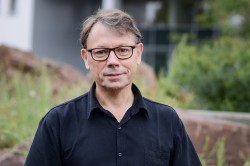
Photo: Sebastian Wiedling / UFZ
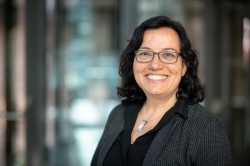
Photo: Sebastian Wiedling / UFZ
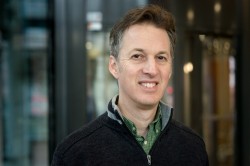
Photo: Sebastian Wiedling / UFZ
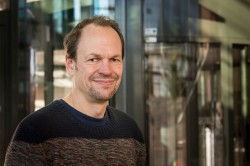
Photo: Sebastian Wiedling / UFZ
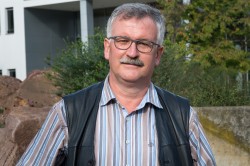
Photo: Sebastian Wiedling / UFZ
Prof. Francois Buscot The botanist and soil biologist is head of the UFZ Department of Soil Ecology and is a Professor at the Institute of Biology at the University of Leipzig. His research focuses on the relationships between soil microorganisms, soil function, plant diversity in the context of accelerated global change. https://www.ufz.de/index.php?en=41325
Prof. Beate Escher The environmental chemist heads the UFZ Department of Cell Toxicology, is a professor at the Eberhard Karls University of Tübingen, lecturer at the ETH Zurich (Switzerland) and honorary professor at the University of Queensland and Griffith University (Australia). She has been a member of the German Science Council since 2018. Her research focus is the environmental risk assessment of organic micropollutants. https://www.ufz.de/index.php?en=38511
Prof. Stan W. Harpole The botanist and ecologist heads the Department of Physiological Diversity at UFZ and iDiv and is a Professor at Martin Luther University Halle-Wittenberg (MLU). His research focuses on developing, testing, and applying biodiversity theory to understand the interactive effects of multiple global change drivers. His expertise bridges ecosystem, theoretical and community ecology. Specific research topics include ecological stoichiometry, niche theory and mechanisms of coexistence. https://www.ufz.de/index.php?en=38877
Prof. Ingolf Kühn The biologist is a scientist in the UFZ Department of Community Ecology and Professor at the Martin Luther University Halle-Wittenberg (MLU). His research focuses on biological invasions, the functional composition of communities and assemblages, i.e. the composition of their functional traits, as well as impacts of climate change and land-use change on such assemblages. http://www.ufz.de/index.php?en=38592
Prof. Josef Settele The agricultural biologist is head of the UFZ Department of Conservation Biology and Professor (apl.) at the Martin Luther University Halle-Wittenberg (MLU). His research focuses on the Conservation and Evolutionary Biology of Insects, Biodiversity and Land Use and Interdisciplinary Cooperation and Project Co-ordination in the field of biodiversity. In the Intergovernmental Science-Policy Platform on Biodiversity and Ecosystem Services (IPBES) he was one of the three directors of the Global Assessment, which was published in May 2019. http://www.ufz.de/index.php?en=38572
Prof. Dagmar Haase The geographer is professor for landscape ecology at the Institute of Geography of the Humboldt University Berlin and guest researcher at the UFZ. https://www.geographie.hu-berlin.de/de/Members/Haase_Dagmar
Dr. Nadja Kabisch The geographer heads the BMBF junior research group Global Change "GreenEquityHEALTH" at the Institute of Geography of Humboldt University Berlin and is a guest researcher at the UFZ. https://www.geographie.hu-berlin.de/de/Members/Kabisch_Nadja
For the ranking, more than 6.200 researchers from 21 natural sciences and social sciences have been selected based on the number of the most frequently cited publications published between January 2008 and December 2019. The Highly Cited Researchers 2020 represent the world’s most influential scientific minds.
The full 2020 Highly Cited Researchers list and executive summary can be found here, and the methodology can be found here.
Further information
UFZ press office
Susanne Hufe
Phone: +49 341 6025-1630
presse@ufz.de
In the Helmholtz Centre for Environmental Research (UFZ), scientists conduct research into the causes and consequences of far-reaching environmental changes. Their areas of study cover water resources, ecosystems of the future, environmental technologies and biotechnologies, the effects of chemicals in the environment, modelling and social-scientific issues. The UFZ employs more than 1,100 staff at its sites in Leipzig, Halle and Magdeburg. It is funded by the Federal Government, Saxony and Saxony-Anhalt.
www.ufz.deThe Helmholtz Association contributes to solving major challenges facing society, science and the economy with top scientific achievements in six research fields: Energy; Earth and Environment; Health; Key Technologies; Matter; and Aeronautics, Space and Transport. With some 39,000 employees in 19 research centres, the Helmholtz Association is Germany’s largest scientific organisation.
www.helmholtz.de